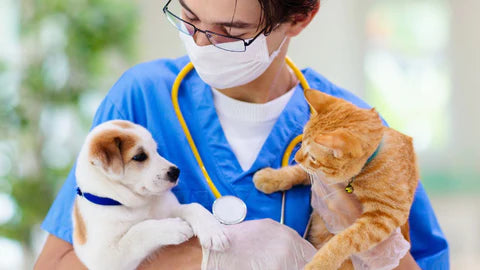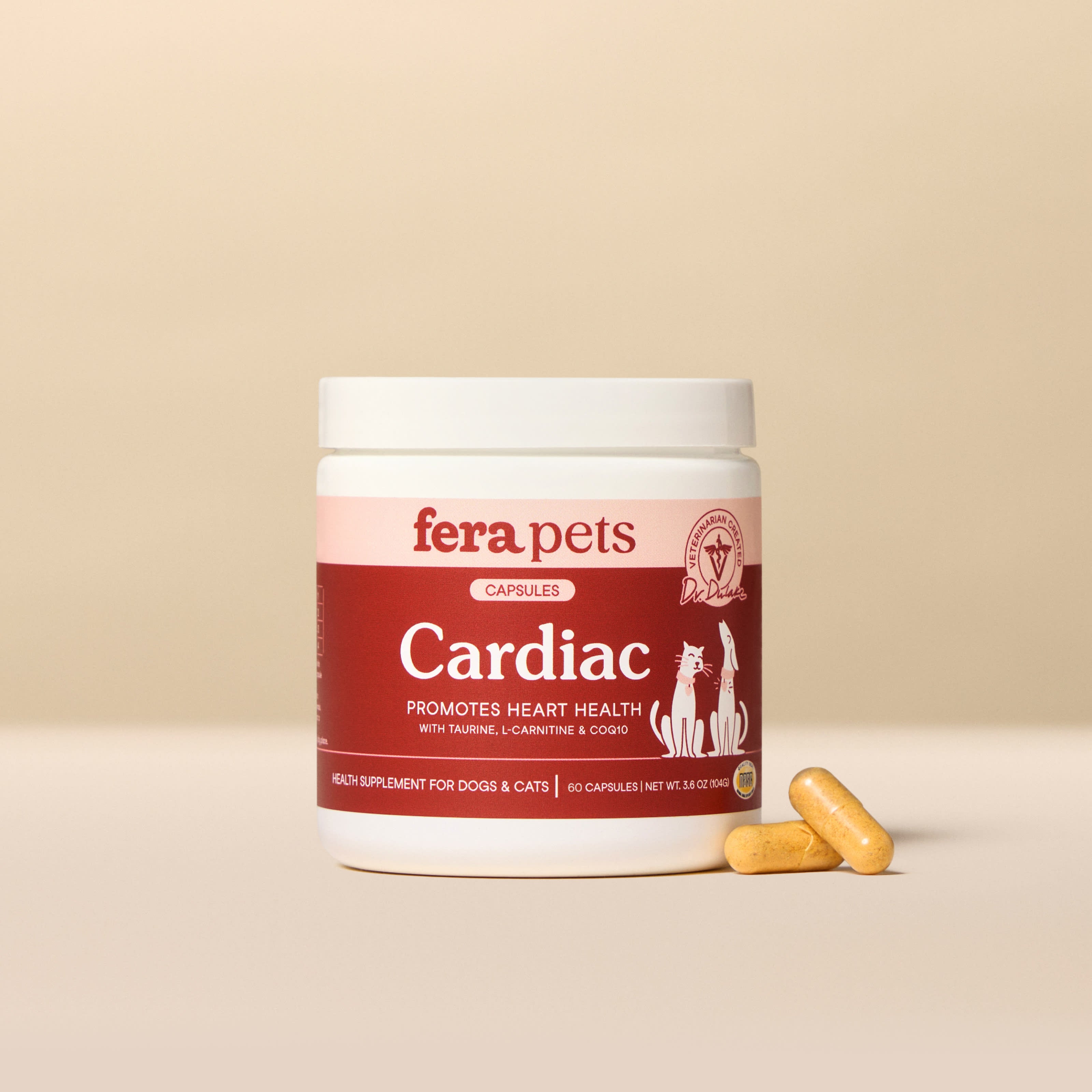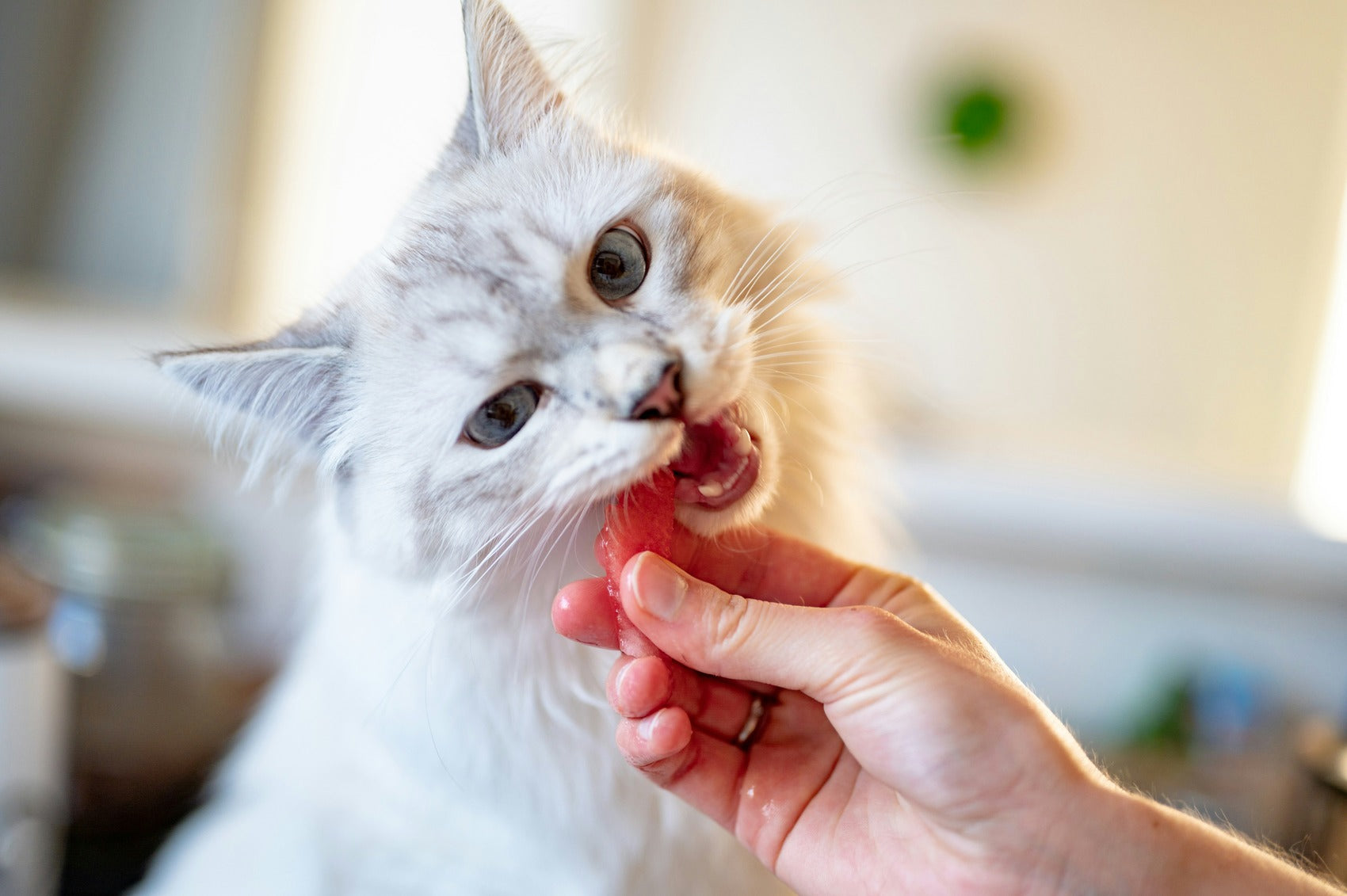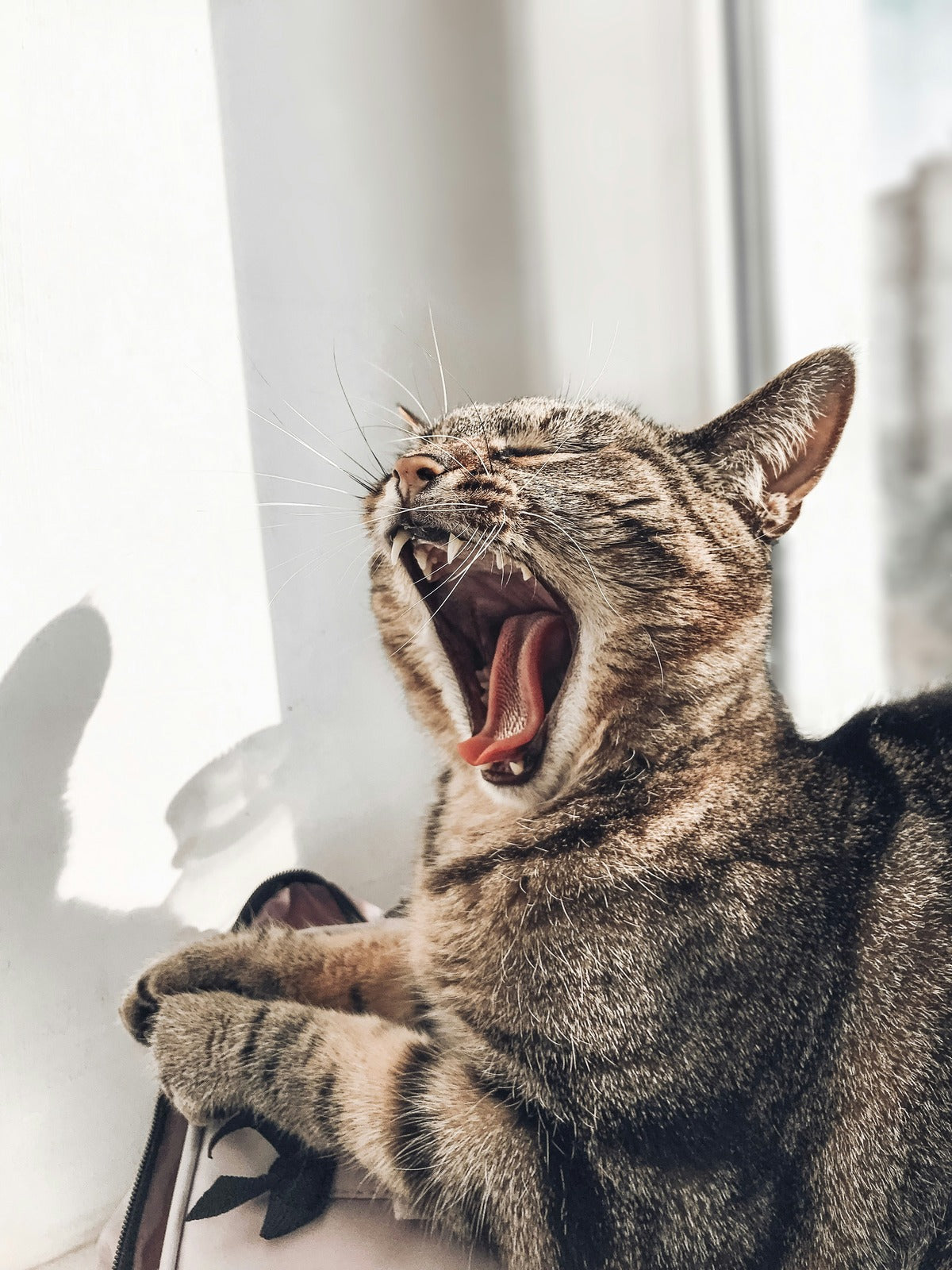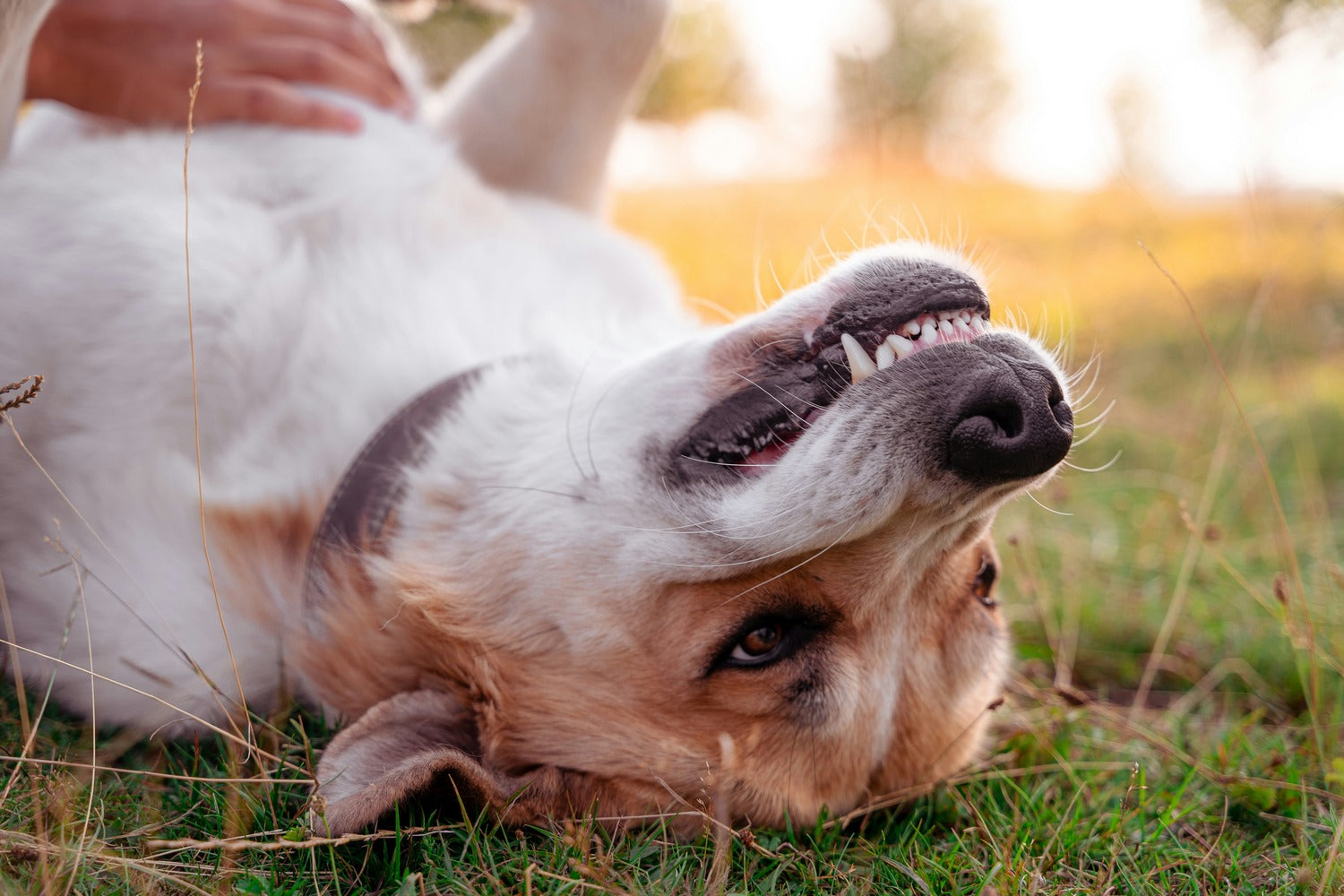What Is Taurine Deficiency, And How Will It Affect My Pet?
Unlock the secret to your pet's health: Prevent taurine deficiency! Discover why taurine is essential, the risks of deficiency in cats and dogs, and how to keep your furry friend healthy with proper supplementation. Learn more now to ensure a happy, healthy life for your pet!
As a pet parent, you’ve likely come across the word “taurine”. Let’s explore why it’s such an essential ingredient for your pets, and how to ensure that your pet stays healthy by preventing a taurine deficiency. Did you know cats, unlike dogs, do not produce any taurine, meaning supplements must be included in their diets.
What Is “Taurine”?
Taurine is an amino acid. Amino acids are the building blocks for protein. 22 amino acids are needed for your pet’s body to function properly. 12 of these amino acids are nonessential. This means that the body is capable of making them on its own. The other 10 are essential amino acids. This means that they must be supplied by the diet.
Taurine is an essential amino acid that helps in the metabolic process and storing of nutrients. Taurine is distributed throughout the body with high concentrations in certain tissues. Three main areas taurine is found is the heart wall muscles, brain, and the retinas in the eyes. Cats and dogs get taurine by eating raw meat. Cooking meat can impact the amount of taurine your pet is getting.
Although taurine’s exact function is elusive, it is well known that taurine deficiency can lead to major health issues in your pet. The most common being blindness from retina degeneration and enlargement of the heart, Dilated Cardiomyopathy or DCM. With taurine supplements DCM can be fully or at least partially reversible depending on the condition your pet is in.
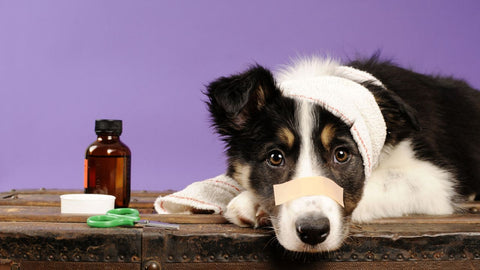
Taurine Deficiency In Dogs
Your dog is capable of making some taurine naturally, but sometimes, you need to supplement the amount of it in their diet. Research has confirmed that the production of taurine can vary according to the size of the dog. Larger dogs, for example, produce taurine at a slower pace than smaller dogs. Recent studies have found connections with taurine deficiencies and dilated cardiomyopathy (DCM) in these breeds among others:
- Golden Retriever
- Newfoundland
- Saint-Bernard
- Cocker Spaniel
- Irish Wolfhound
Many dog foods in today’s market are grain-free. They have a significant amount of plant material, starches, and legumes. This means there is not as much meat. And as we just learned, dogs get taurine through eating meat. Grain-free diets have been linked to dogs diagnosed with Dilated Cardiomyopathy (DCM) due to taurine deficiency. When your dog is not getting enough taurine, serious cardiac complications can arise.
Here’s why you should consider adding extra taurine to your dog’s diet:
- When there is taurine deficiency is your dog, the heart muscle becomes thinner, and the chambers become enlarged, leading to DCM
- Your taurine-deficient dog is more susceptible to eye disease
- If your dog has urinary issues, liver disease, seizure disorders, and Type I diabetes, taurine supplements may be a lifesaver!
Here are some warning signs that your dog might be suffering from a taurine deficiency:
- Blood in the urine
- Irregularities with urination
- Pain with urinating
- Weakness
- Excessive panting without exercising
- Abdominal pain
- Problems with vision

Taurine Deficiency In Cats
Cats, unlike dogs, do not produce any taurine, meaning supplements must be included in their diets. Here’s what happens when cats don’t get enough taurine:
- Dilated cardiomyopathy (DCM) causes pumping issues in the heart and leads to congestive heart failure
- Tooth decay and cavities occur in a taurine-deficienct cats
- Retinal damage, if left untreated can result in irreversible blindness
- Reproductive issues
Symptoms in cats are slow at presenting themselves and are usually found to be related to the later diseases. Some things to watch for are:
- Low birth weights
- Small litter size
- Digestive issues
- Retinal degeneration
- Panting without excessive exercise
Diagnosing a Taurine Deficiency in Your Cat or Dog
You will need to provide your veterinarian a thorough history of your pet’s health. This includes background history related to your diet and what your pet regularly eats. Your veterinarian will give your pet a complete physical examination that includes a thorough examination of the heart.
Routine laboratory testing will be done. Including a complete blood count or CBC, a urinalysis, and a biochemistry profile. The blood sample will be tested for low taurine levels. If heart disease is found your pet will undergo more tests for diagnosis and the severity of the disease will be evaluated. Because of the high concentration of taurine in the retina your veterinarian will perform a detailed examination on your pet’s eyes. Retinal damage is commonly found if your pet is indeed taurine deficient.
Treatment
The best course of action is a taurine supplement. Depending on the severity of the symptoms and how long your pet has been suffering, an ongoing supplementation may be needed for the life of your pet.
You should always buy your supplements from a reputable brand. Watch from harmful preservatives, dyes, and colors. Look for products with no soy, dairy, or artificial ingredients.
We recommend looking for a supplement that has more than just taurine in it. If your pet has been diagnosed with heart disease other ingredients to watch for are L-Carnitine Tartrate, Hawthorn Berry, and Vitamin E. Adding a supplement that enhances overall cardiovascular health can help your pet get back to their regular selves sooner.
Routine examination will be required to monitor the treatment response and make sure proper taurine levels are being maintained. Good nursing at home during the period of treatment is essential to recovery. Ensure you are consistently providing your pet with the proper dosage or taurine. Keep your home stress free and give your pet all the extra love and cuddles.
Upgrade Your Pet’s Health the Natural Way
Discover the secret to optimized pet health with Dr. Michelle Dulake, a seasoned veterinarian. Harness cutting-edge knowledge to unlock your pet's potential for longevity and happiness. Experience the difference that expert guidance can bring to your pet's life today!
At Fera Pet Organics, we’re committed to using only the most natural high-quality ingredients to keep your furry family members healthy and happy for as long as possible.
We’d love to hear from you! What do you want to learn about next? Do you have any comments or questions? Reach us at hello@ferapets.com!
